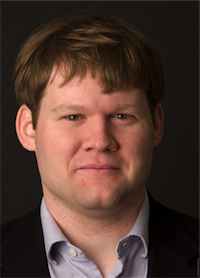 In den letzten Wochen sind zwei Bücher zum Thema »Christsein und Politik« erschienen. Einmal hat Wayne Grudem das sehr umfangreiche Werk:
In den letzten Wochen sind zwei Bücher zum Thema »Christsein und Politik« erschienen. Einmal hat Wayne Grudem das sehr umfangreiche Werk:
publiziert.
 Das zweite Buch:
Das zweite Buch:
- Michael Gerson u. Peter Wehner: City of Man: Religion and Politics in a New Era, Moody Press, 172 S.
ist in der neuen Reihe »A Cultural Renewal Series« bei Moody erschienen. Die Reihe wird von Tim Keller und Collin Hansen betreut.
Das Vorwort zu City of Man (Augustinus-Leser wissen mit dem Titel sicher etwas anzufangen) hat Tim Keller geschrieben. Hier ein Auszug:
In the mid-twentieth-century, H. Richard Niebuhr wrote his classic Christ and Culture, which helped mainline Christian churches think through ways to relate faith to politics. In the end, Niebuhr came down on the side of universalism, the view that ultimately God is working to improve things through all kinds of religions and political movements. The result of his work was to lead mainline Protestant churches to become uncritical supporters of a liberal political agenda (though Niebuhr himself opposed such a move).
However, the mainline churches have shrunk and aged. Today, it is the more theologically conservative evangelical and Pentecostal churches that are growing, and they now outnumber mainline Protestants. Yet at the very same time, thenumber of secular Americans—those who claim not to believe in God, or at least to have “no religious preference”—are also fast rising in number.
This creates a far more complicated situation than the one that Niebuhr faced over half a century ago. In today’s society we have both rising secularism and rising orthodoxy. We have political polarization that would have been unimaginable ageneration ago. And we have an evangelical constituency that is growing and institutionally powerful, but which is also culturally impotent. Why? It is largely because it has not done the hard work of thinking through the same issues that Niebuhr pondered decades ago. But it must do so now in a very different cultural and historical situation, and with a much greater trust in the ancient sources of orthodox theology and in the reliability of the Scriptures.
The present volume seeks to do this in one particular area, that of politics. My friends Michael Gerson and Pete Wehner are excellent guides. They write as political conservatives, but they begin with a critique of the Christian Right. A very large number of young evangelicals believe that their churches have become as captured by the Right as mainline churches were captured by the Left. Michael and Pete recognize this and largely agree. But they counsel that political withdrawal is not the correct response, nor should alienated evangelicals go down the mainline path. Instead, they urge careful theological reflection, and the rest of this short volume serves as a guidebook to the issues that will have to be addressed, rather than as a finished manifesto of what this new political theology must be.
Das vollständige Vorwort gibt es bei Justin Taylor.
Das Buch kann hier bestellt werden:

 Es mag viele Gründe geben, warum jemand keine Gottesdienste besucht und nicht Glied einer Ortsgemeinde ist. Die Pandemie, Konflikte unter Christen und enttäuschte Erwartungen sind nur einige davon. Ist es überhaupt der Mühe wert, sich einer Gemeinde anzuschließen und ist das regelmäßige Zusammenkommen wirklich nötig?
Es mag viele Gründe geben, warum jemand keine Gottesdienste besucht und nicht Glied einer Ortsgemeinde ist. Die Pandemie, Konflikte unter Christen und enttäuschte Erwartungen sind nur einige davon. Ist es überhaupt der Mühe wert, sich einer Gemeinde anzuschließen und ist das regelmäßige Zusammenkommen wirklich nötig?
 In den letzten Wochen sind zwei Bücher zum Thema »Christsein und Politik« erschienen. Einmal hat Wayne Grudem das sehr umfangreiche Werk:
In den letzten Wochen sind zwei Bücher zum Thema »Christsein und Politik« erschienen. Einmal hat Wayne Grudem das sehr umfangreiche Werk: Das zweite Buch:
Das zweite Buch: Timmy Brister hat kürzlich ein dreiteiliges Interview mit Collin Hansen veröffentlicht. Collins Buch über die jungen, rastlosen und reformierten Christen in den USA ist vor wenigen Wochen bei Crossway Books erschienen:
Timmy Brister hat kürzlich ein dreiteiliges Interview mit Collin Hansen veröffentlicht. Collins Buch über die jungen, rastlosen und reformierten Christen in den USA ist vor wenigen Wochen bei Crossway Books erschienen: